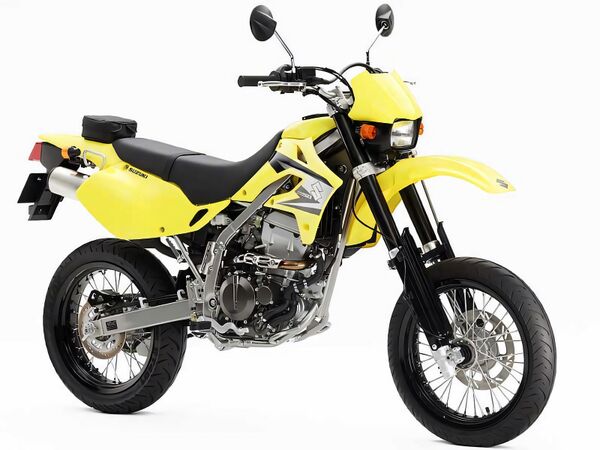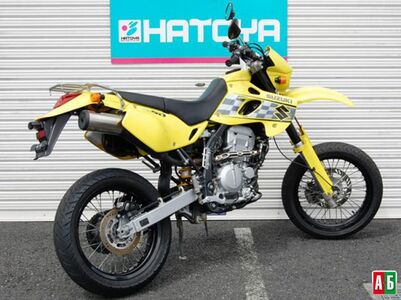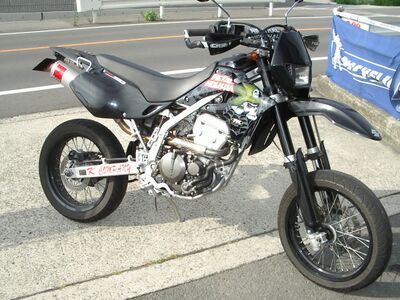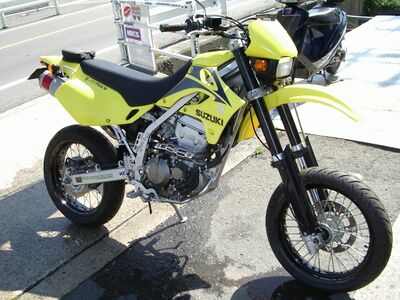Difference between revisions of "Suzuki 250SB"
m |
m |
||
| Line 2: | Line 2: | ||
{{#seo: | {{#seo: | ||
|keywords={{PAGENAME}}, review, specs, owners manual, service manual, guide | |keywords={{PAGENAME}}, review, specs, owners manual, service manual, guide | ||
| − | |og:image= | + | |og:image=https://en.enduro.team/images/6/60/Suzuki_250SB.jpg |
}} | }} | ||
__notoc__ | __notoc__ | ||
| − | [[file: | + | [[file: Suzuki_250SB.jpg | 600px | center | Suzuki 250 SB]] |
The Suzuki 250 SB appeared in 2002 and was essentially the first generation [[Kawasaki_D-Tracker_250 | Kawasaki D-Tracker 250]] marketed under the Suzuki brand. In terms of technical characteristics, they are completely identical to each other, and the main differences were only in the coloring and design of the stickers. The main motorcycle sales market is Japan. | The Suzuki 250 SB appeared in 2002 and was essentially the first generation [[Kawasaki_D-Tracker_250 | Kawasaki D-Tracker 250]] marketed under the Suzuki brand. In terms of technical characteristics, they are completely identical to each other, and the main differences were only in the coloring and design of the stickers. The main motorcycle sales market is Japan. | ||
{{Ads_top}} | {{Ads_top}} | ||
Latest revision as of 18:57, 8 August 2023
The Suzuki 250 SB appeared in 2002 and was essentially the first generation Kawasaki D-Tracker 250 marketed under the Suzuki brand. In terms of technical characteristics, they are completely identical to each other, and the main differences were only in the coloring and design of the stickers. The main motorcycle sales market is Japan.
Main competitors:
The base of the motorcycle was taken from the base of old versions Kawasaki KLX 250: 1-cylinder 4-stroke liquid-cooled engine, 249 cc. see, with a capacity of 29 hp. and 25 Nm of torque; frame and chassis. The main changes affected the wheels (road spokes 17 '), suspension settings and braking system.
The Suzuki SB250 model existed on the market until 2005, after which it was discontinued and was no longer sold. Meanwhile, the Kawasaki D-Tracker 250 model continued to be in high demand in the market, completely transferring production in 2003 to Thailand, and by 2008 undergoing a serious restyling. D-Tracker 250 is currently marketed under the name Kawasaki D-Tracker X in many countries around the world and mainly for the Southeast Asian market.
Photos
Specifications
Specifications Suzuki 250 SB:
| Model | Suzuki 250 SB |
|---|---|
| Motorcycle type | supermoto (motard) |
| Release year | 2002-2005 |
| Engine type | 1-cylinder, 4-stroke, DOHC |
| Working volume | 249 cc cm. |
| Cooling | Liquid |
| Bore / Stroke | 72 x 61.2 mm |
| Compression ratio | 11.0: 1 |
| Number of valves per cylinder | 4 valves per cylinder |
| Fuel supply system | carburetor, 1x Keihin CVK34 |
| Ignition type | electronic (CDI) |
| Run | electric starter |
| Maximum power | 29 hp at 9000 rpm |
| Maximum torque | 25 Nm @ 7000 rpm |
| Gearbox | 6-speed |
| Drive type | chain |
| Frame | steel half-duplex |
| Front suspension | inverted fork (adjustable compression and rebound damping), 230mm travel |
| Rear suspension | monoshock with Uni-Trak progression (adjustable compression and rebound damping), stroke - 205 mm |
| Front tire size | 110 / 70-17 |
| Rear tire size | 130 / 70-17 |
| Front brakes | Single 250mm disc, 2-piston caliper |
| Rear brakes | Single 220mm disc, 1-piston caliper |
| Motorcycle length | 2065 mm |
| Motorcycle width | 790 mm |
| Motorcycle height | 1175 mm |
| Saddle height | 865 mm |
| Wheelbase | 1435 mm |
| Fuel tank capacity | 7.5 l |
| Motorcycle weight (dry) | 119 kg |
Documentation



